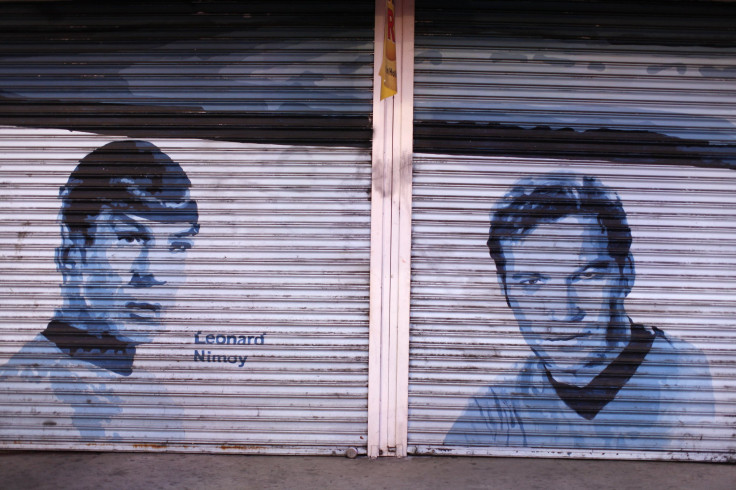Leonard Nimoy, Science Fiction Icon Of 'Star Trek' Fame, Dies At 83
Leonard Nimoy, one of science fiction’s most beloved actors, died Friday at his home in the Bel Air neighborhood of Los Angeles from complications related to chronic obstructive pulmonary disease. He was 83. He is survived by his wife, Susan Bay, and two children, Adam and Julie.
Nimoy was best known for his role as Mr. Spock in the iconic 1960s science fiction series "Star Trek," a role that catapulted him to worldwide fame and helped turn science fiction into a serious art form. Nimoy was a multitalented actor who became a foundational figure in the science fiction world via Mr. Spock, a role that he used to advocate for the arts and scientific progress.
Nimoy was born in Boston to Jewish-Ukrainian immigrants and lived there until moving to Los Angeles in the early 1950s to pursue an acting career. His grandfather pushed him as a child to follow his acting dreams. His first starring role was as the titular disfigured boxer in 1952’s "Kid Monk Baroni"; his performance was well-received despite the film’s lackluster box-office performance.
Nimoy served in the U.S. Army from 1953-1955, then went on to roles in films and on stage and worked at various jobs to support himself. He was teaching Method acting when he landed the role of Mr. Spock on "Star Trek" in 1966. Spock was a half-Vulcan, half-human who served as science officer and first officer on the starship Enterprise. Vulcans rely almost solely on logic and reason while remaining largely immune to emotion. Much of Spock’s appeal was his gradual emotional warming and strong relationship with Captain James Kirk, portrayed by William Shatner. The two actors became lifelong friends and Nimoy would be Shatner’s best man at his 1997 wedding.

Though "Star Trek" series lasted only three seasons on NBC, Shatner and Nimoy helped it become a science fiction mainstay that would influence filmmakers, writers and pop culture for decades. The Vulcan hand greeting, made palm out with fingers split between the middle and ring fingers, became ubiquitous in the science fiction community and was often parodied and emulated. Nimoy came up with the greeting from a Jewish prayer sign he learned as a child. The greeting was often accompanied by the phrase “live long and prosper,” which became equally iconic. Both Nimoy and Shatner released music during and after the run of "Star Trek," some of which you can listen to below:
Nimoy developed an addiction to alcohol during "Star Trek" and entered rehabilitation at least once. The series was canceled in 1969 due to poor ratings, but a cult following drummed up demand for more tales from the Starship Enterprise. There have been four spinoff "Trek" TV series and 12 films, as well as a 1973 animated series for which Nimoy reprised his role as Spock, or his voice at least. He would later lend his voice to other cartoons, including two iconic appearances in "The Simpsons." He also employed his baritone voice in shorts, series and feature films. In 1977 he recorded a reading of the 1947 Robert A. Heinlein science fiction classic “The Green Hills of Earth.”
Nimoy proved himself talented behind the camera as well, both in film and still photography. He directed and co-wrote the screenplays for two "Star Trek" feature films, "Star Trek III: The Search for Spock" (1984) and "Star Trek IV: The Voyage Home" (1986), respectively. He released photography books throughout his career. He wrote poetry and published a number of collections between 1973 and 2010. He also wrote two autobiographies, first in 1975 and again 20 years later.
Nimoy was a frequenter of "Star Trek" conventions and other science fiction gatherings. In his later years he became active on Twitter and regularly engaged with fans there and through other social media.
He revealed earlier this month on Twitter that he had COPD and blamed it on his years of heavy cigarette smoking. He urged his fans to stop smoking: “Grandpa says, quit now!”
© Copyright IBTimes 2025. All rights reserved.






















